
Rediscoverthefiftiesandsixtieson board the vehicles that went through them.
Our busesare fully restored and the ceremonial cars are inexceptional original condition,often with low mileage and first hand.

The 319 was the first Daimler-Benz van after the war years. Our bus was registered in Luxembourg in 1958. It was in operation until 1981 and was then put aside.
The first versions have 3 passenger doors. Our bus also has voussoirs and a sliding roof. The seats are in their original condition.
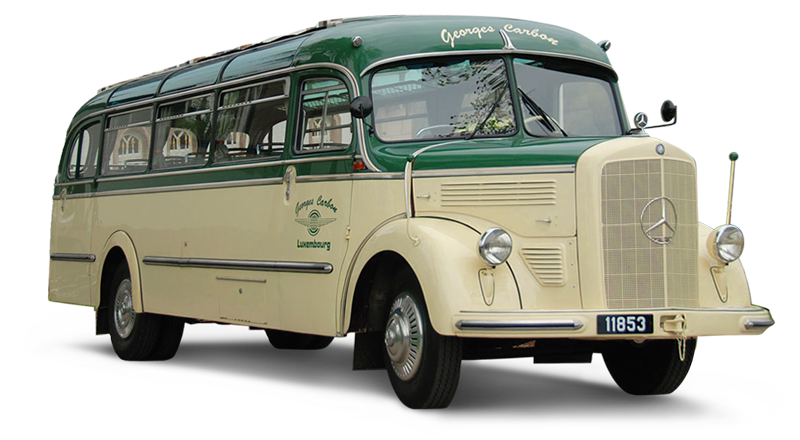
It was the first bus produced in the Mannheim factory after the war. It shared the same basis as the Mercedes-Benz L 3500 truck presented at the same time, with a diesel engine installed under a bonnet at the front. Within a few years, the O 3500 became a complete coach family consisting of coaches, intercity buses and city buses. With 6049 units produced from December 1949 until the end of production in 1955, the O 3500 was the best selling bus of its time.
Our O3500 coach is from 1953, has a beautiful sunroof, and voussoirs!
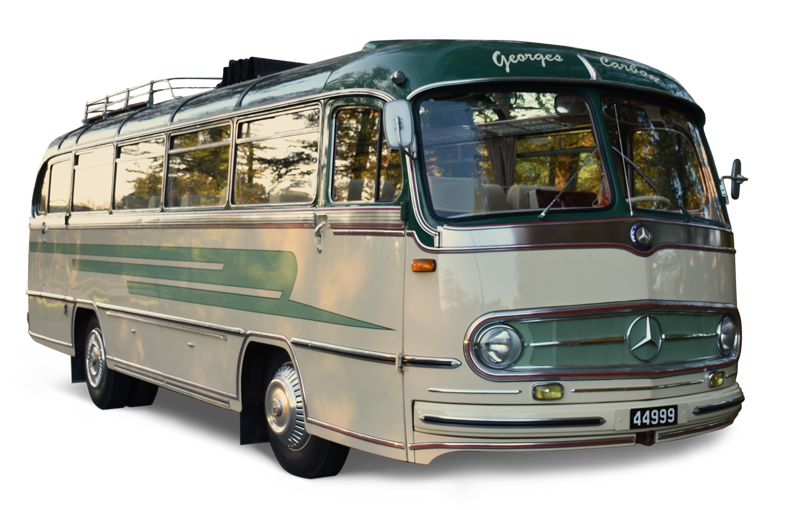
Originally, the bus was designed from a truck chassis. It was not until the mid 1950s that chassis were developed and produced exclusively for coaches, such as the Mercedes-Benz O321H. Our example dates from 1962 and was ordered by its first owner in a luxury travel version. Georges Carbon is the second owner.
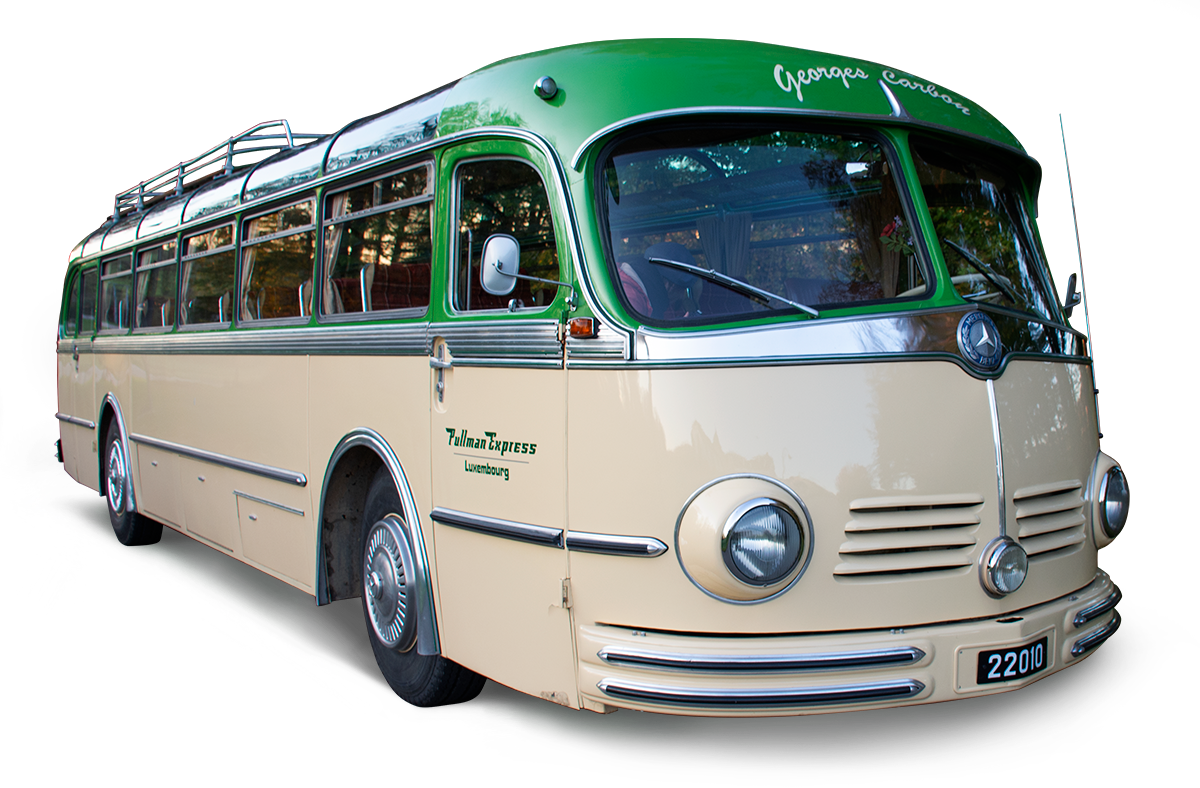
The Mercedes-Benz O 6600 H caused a sensation in 1951. Daimler-Benz was not used to trying "new experiments" such as the rear engine. Better driving and steering characteristics and developments such as the electro-magnetic gearbox did the rest to convince the initially sceptical customers. A striking design feature of the bus was the "blind fog lamp" placed in the middle of the front. The name "Pullman" was intended to underline the noble character of the design.
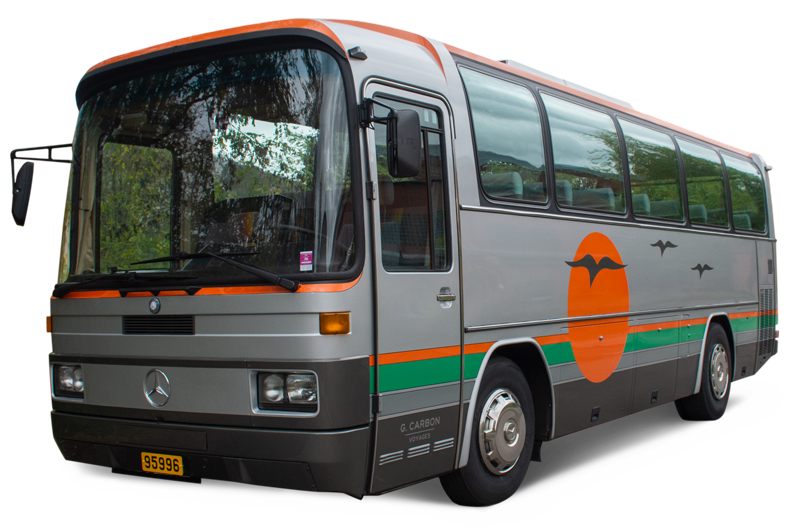
The Mercedes-Benz O 303 was a Daimler-Benz AG bus produced from 1975 to 1992.
In 1974, Mercedes-Benz presented the new O 303 bus series at the Paris Motor Show, with a much sleeker design than its predecessor, in keeping with contemporary tastes.
The O 303 was designed as a coach, one of many different versions.
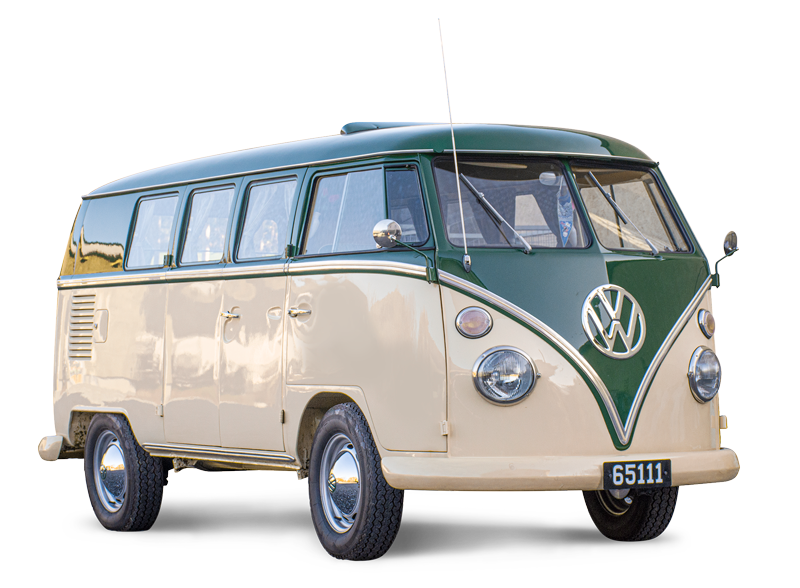
The Volkswagen Bulli became, like its sister car the Beetle, an icon of car design during the "Trente Glorieuses".
Our Bulli was first registered in 1963.
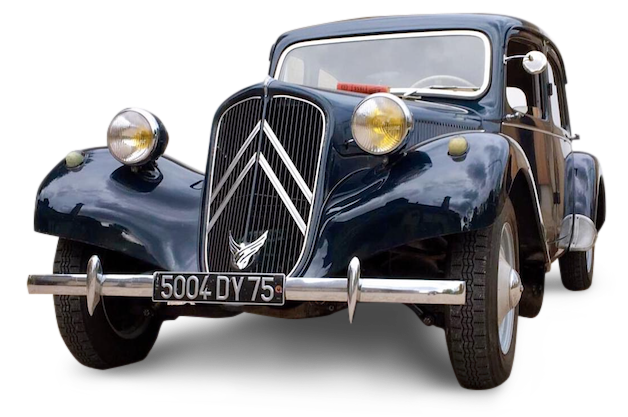
The Citroën Traction, more than 20 years of success never denied. At first subject to many criticisms at its release, on April 19, 1934, the 7 is the first of the line of front-wheel drives that end in 1957. Revolutionary by its innovations, it forever marks the history of the automobile.
It is in exceptional condition, never restored.
